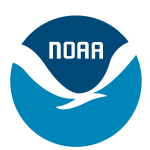- Industry: Government
- Number of terms: 30456
- Number of blossaries: 0
- Company Profile:
NOAA Coral Reef Conservation Program, National Oceanic and Atmospheric Administration, U.S. Department of Commerce
A behavior that occurs when an animal immediately mimics the actions of another animal while they are in each other's presence.
Industry:Natural environment
A diploid gene pair having identical alleles in both copies, for example, AA or aa.
Industry:Natural environment
A persistent remnant of an otherwise extinct taxon; a biological or geological feature that has survived in a considerably changed environment.
Industry:Natural environment
A two-stage type of cell division in sexually reproducing organisms that results in the development of sperm and egg cells . In meiosis, a diploid cell divides to produce four haploid cells, each with half the original chromosome content. In organisms with a diploid life cycle, the products of meiosis are called gametes. In organisms with an alternation of generations, the products of meiosis are called spores.
Industry:Natural environment
An environment characterized by extremes in growth conditions, including temperature, salinity, ph, among others .
Industry:Natural environment
Any species of bony fishes in the family Apogonidae. Cardinal fishes are often brightly colored with attractive patterns, usually in shades of red or brown. Most are small tropical marine species, although some live in brackish and even fresh water waters.
Industry:Natural environment
ESI maps serve as quick references for oil and chemical spill responders and coastal zone managers. They contain three kinds of information: (1) Shorelines (color-coded to indicate their sensitivity to oiling); (2) Sensitive biological resources (such as seabird colonies and marine mammal hauling grounds. They are depicted by special symbols on the maps); and (3) Sensitive human-use resources (such as water intakes, marinas, and swimming beaches). Project scientists have created collections of ESI maps, called ESI atlases, for most coastal areas in the US, including Alaska, Hawaii, the Great Lakes, and the Trust Territories. Each atlas includes maps and additional data and information. Starting in 1995 with the outer coast of California, ESI project members began using a Geographic Information System (GIS) to produce updated ESI maps that are higher in quality and can be more readily reproduced.
Industry:Natural environment
In sponges, an internal cavity that is lined with choanocytes.
Industry:Natural environment
